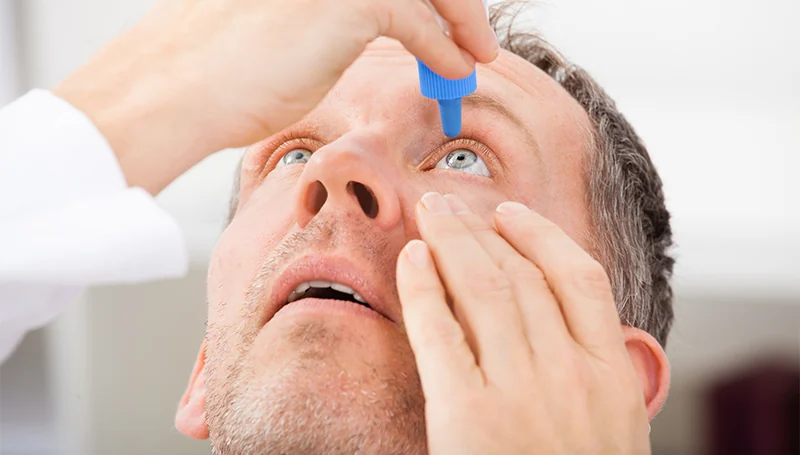July is Dry Eye Awareness Month

If you have been rubbing your eyes due to redness, irritation, and dryness, you may be dealing with a condition known as dry eye. Dry eye is typically a result or reduced lubrication in the eyes which can make them dry, itchy, and painful. While some patients experience them on a temporary basis, others deal with chronic cases of dry eye that can impact their day-to-day lives. The doctors of Cincinnati Eye Institute educate patients on dry eye, especially during the month of July which is Dry Eye Awareness Month!
What is dry eye?
When the eyes are not properly lubricated, patients will be diagnosed with dry eye. This condition is uncomfortable, painful, and can be caused by both medical and environmental factors. Patients may experience dry eye on a short-term basis or as a chronic condition that needs to be managed.
What are the symptoms of dry eye?
Dry eye symptoms may include:
- Dry, itchy eyes
- Painful sensations in the eyes
- The feeling that something is in the eyes (sand, grit)
- Noticeable redness and irritation
- Mucus in or around the eyes
- Blurred vision
- Tired eyes
What causes dry eye?
There are many reasons why a patient may develop dry eye. Common causes include:
- Natural aging process
- Certain medications and medical conditions
- Environmental factors
- Allergies
- Continued contact use
What can be done for dry eyes?
There are many ways an eye doctor at Cincinnati Eye Institute may approach the treatment of dry eyes. Dry eyes can be treated in the following ways:
- Environmental changes. Dry eye can commonly occur due to environmental allergies, including outdoor hay fever. When outdoors, use appropriate eye protection and avoid cigarette smoke and windy days. These can exacerbate symptoms of dry eye for many patients.
- Eye drops. There are several prescription and over-the-counter eye drops that can be utilized throughout the day to maintain hydration in the eyes and reduce the symptoms of dry eye.
- Humidifier. Dry air can make dry eyes worse, so adding moisture int eh house with a humidifier is one way to combat dryness in the air.
- Give your eyes a rest. Eyes should get a rest from reading, watching TV, and computer use to help facilitate regular blinking and lubrication. Patients should also get plenty of sleep at night and remember to take out their contact lenses and use glasses about once or twice a week if possible.
- Advanced, in-office, non-surgical treatments. There are new methods that use thermal pulsation, intense pulsed light or neurostimulation that address the potential causes of dry eye, rather than the singular focus on reducing symptoms.
Learn more about dry eye today
Cincinnati Eye Institute is here to help patients throughout the Cincinnati, Ohio area with vision concerns including dry eye. To learn more about the many options we have available, please contact us to schedule a Dry Eye Evaluation.